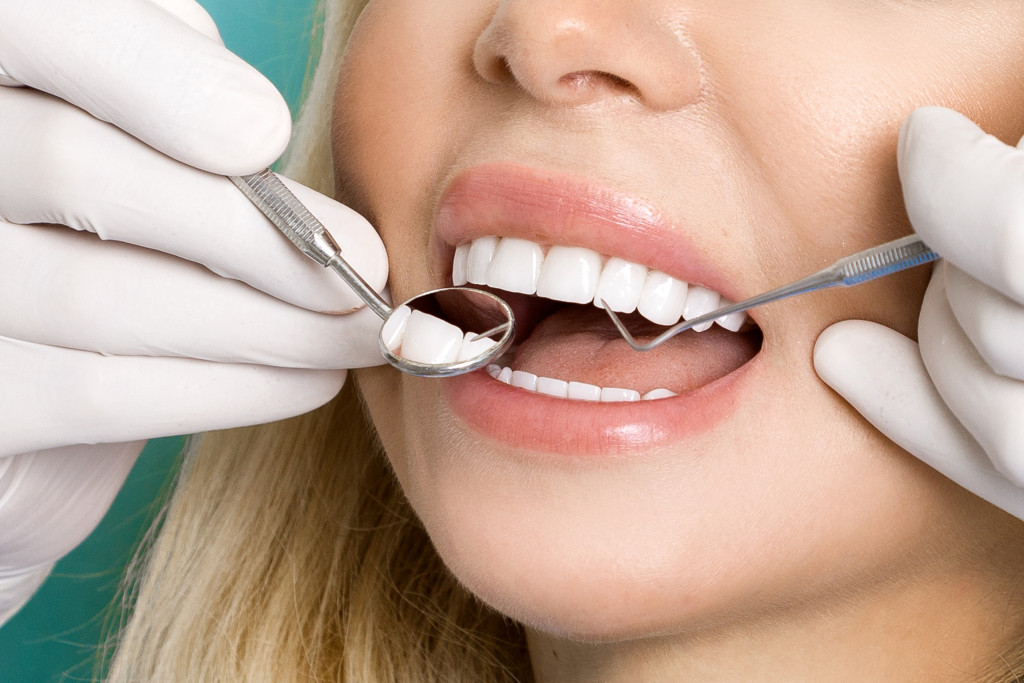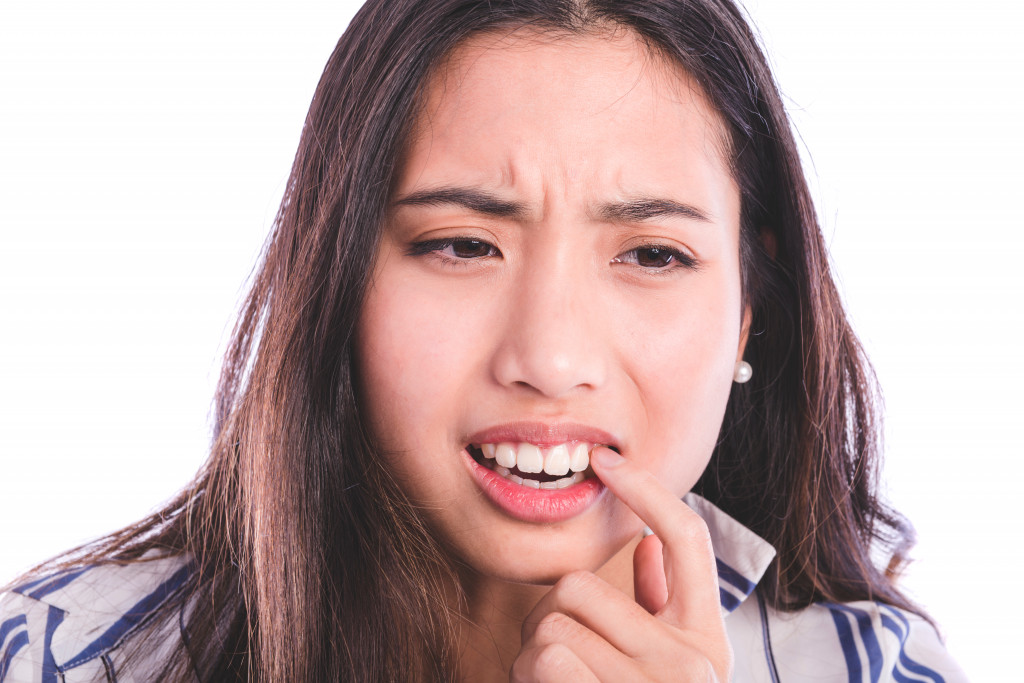- Orthodontic treatments can help straighten crooked teeth.
- Regular dental check-ups and cleanings are important for maintaining dental health.
- Learn about different types of toothbrushes and flossing techniques.
- Address bad breath with proper oral care.
- Identify the early warning signs of dental issues and visit a dentist immediately.
Caring for your oral health is essential to your overall well-being. Not only does it help maintain a healthy smile, but it can also prevent serious issues such as tooth decay and gum disease. There are many ways to care for your dental health properly, and the following tips will help you.
1. Consider Orthodontic Treatments for Crooked Teeth
If your teeth are crooked or misaligned, orthodontic treatments can help. Taking advantage of Invisalign aligners is a popular option for straightening teeth without metal braces. It consists of custom-made, clear aligners to fit your mouth and slowly move the teeth into the desired position over time. You could also opt for traditional metal braces that use wires and brackets to align the teeth. Additionally, there are options for ceramic braces that combine metal and transparent materials.
2. Get Regular Dental Check-Ups and Cleanings

It’s essential to get regular check-ups and cleanings at the dentist’s office to maintain your dental health. During a check-up, your dentist will examine your teeth and gums for signs of decay or disease. They may also take X-rays to check the condition of your existing tooth fillings and look for any cavities that need to be filled.
Cleanings are essential, too, as they help remove plaque and tartar buildup from your teeth that can cause decay and gum disease. Regular cleanings also help keep your teeth looking their best, an added benefit.
3. Learn About Types of Toothbrushes and Flossing Techniques
Taking proper care of your teeth and gums starts with the basics, such as brushing and flossing. When it comes to selecting a toothbrush, there are several different types and styles available. Soft-bristled brushes are best for sensitive teeth and gums, while hard-bristled brushes are better suited for tougher plaque and tartar. You should become familiar with various flossing techniques to ensure a thorough cleaning.
4. Address Bad Breath with Proper Oral Care
The key to preventing bad breath is good oral hygiene. Brushing your teeth twice daily and flossing daily can help remove plaque and food particles that cause bad breath. Regularly using an antibacterial mouth rinse can reduce the bacteria in your mouth responsible for giving off foul odors. Avoiding foods that cause bad breath, such as garlic and onions, can also be helpful. Opting for sugar-free gum and mints can help reduce the number of bacteria in your mouth.
5. Identify the Early Warning Signs of Dental Issues

Identifying the early warning signs of dental issues, such as swollen gums, tooth pain, and bad breath. Early detection can help ensure potential problems are caught and treated before they become significant.
Here are some common dental issues you should know about:
Swollen Gums
Swollen gums can indicate periodontal disease, caused by bacteria in the mouth that attack and destroy the supporting connective tissue and bone structure of your teeth. Symptoms may include redness, tenderness, swelling, or bleeding of the gums during brushing or flossing. If you experience any of these symptoms, you must schedule an appointment with a dentist as soon as possible for treatment.
Tooth Pain
Experiencing pain in your teeth could indicate various dental issues, including tooth decay, gum disease, abscesses, fractures, grinding habits, sensitivity to hot and cold food or drinks, jaw misalignment, and even stress. If your teeth are causing you distress, the best course of action is to visit the dentist so that they can figure out precisely what’s wrong and provide prompt and effective relief.
Changes in Bite
Changes in your bite can indicate something is wrong with your teeth or jawbone alignment and may be a sign of a more serious dental issue. If you notice that your bite changes or feel uncomfortable when you eat or talk, it’s essential to see a dentist for an exam and treatment as soon as possible.
Loose Teeth
Loose teeth can be a sign of gum disease, trauma from an injury or grinding habits, or age-related issues. Suppose you notice that one or more of your teeth are becoming loose or shifting positions in your mouth. In that case, it’s essential to make an appointment with a dentist immediately so they can diagnose the underlying cause and help determine the best treatment.
Final Words
Properly caring for dental health is essential for a healthy and beautiful smile. Following the five tips outlined in this article can help ensure proper oral hygiene and avoid major dental issues. Doing so will keep your smile healthy and bright for years to come.



